Gastroenteritis (intestinal flu, enteritis, or stomach flu) is a viral infection of the digestive system. It is one of the most common ailments of the digestive system. Gastroenteritis manifests itself by acute diarrhea, i.e., an increase in the frequency and a change in the consistency of the stool to semi-liquid or liquid. A common symptom of enteritis and gastritis is vomiting, usually after eating, and abdominal pain.
Although this condition is troublesome, it usually lasts a few days and does not pose a significant threat to them. However, in the case of certain groups of patients, such as children, pregnant women, or seniors, it may lead to severe dehydration and disturbances in the body's electrolyte balance. That is why a patient with intestinal flu needs to stay hydrated and follow several rules related to an easily digestible diet.
Typical gastroenteritis symptom![]() is the sudden onset of vomiting and diarrhea. The specialists define diarrhea
is the sudden onset of vomiting and diarrhea. The specialists define diarrhea![]() as at least three bowel movements in one day with a characteristic consistency – semi-liquid, liquid, or watery stool.
as at least three bowel movements in one day with a characteristic consistency – semi-liquid, liquid, or watery stool.
In stomach flu, there may also be nausea, lack of appetite, malaise, and general weakness. The body temperature may be elevated – sometimes sub-febrile conditions and fever occur. However, this is not the norm, so gastroenteritis without fever is also the standard. In stomach flu, abdominal pain is usually crampy and spreads throughout the entire abdominal cavity. Gastroenteritis during pregnancy has similar symptoms, but in the first trimester, some of the symptoms, especially vomiting, may be confused with typical changes accompanying this state.
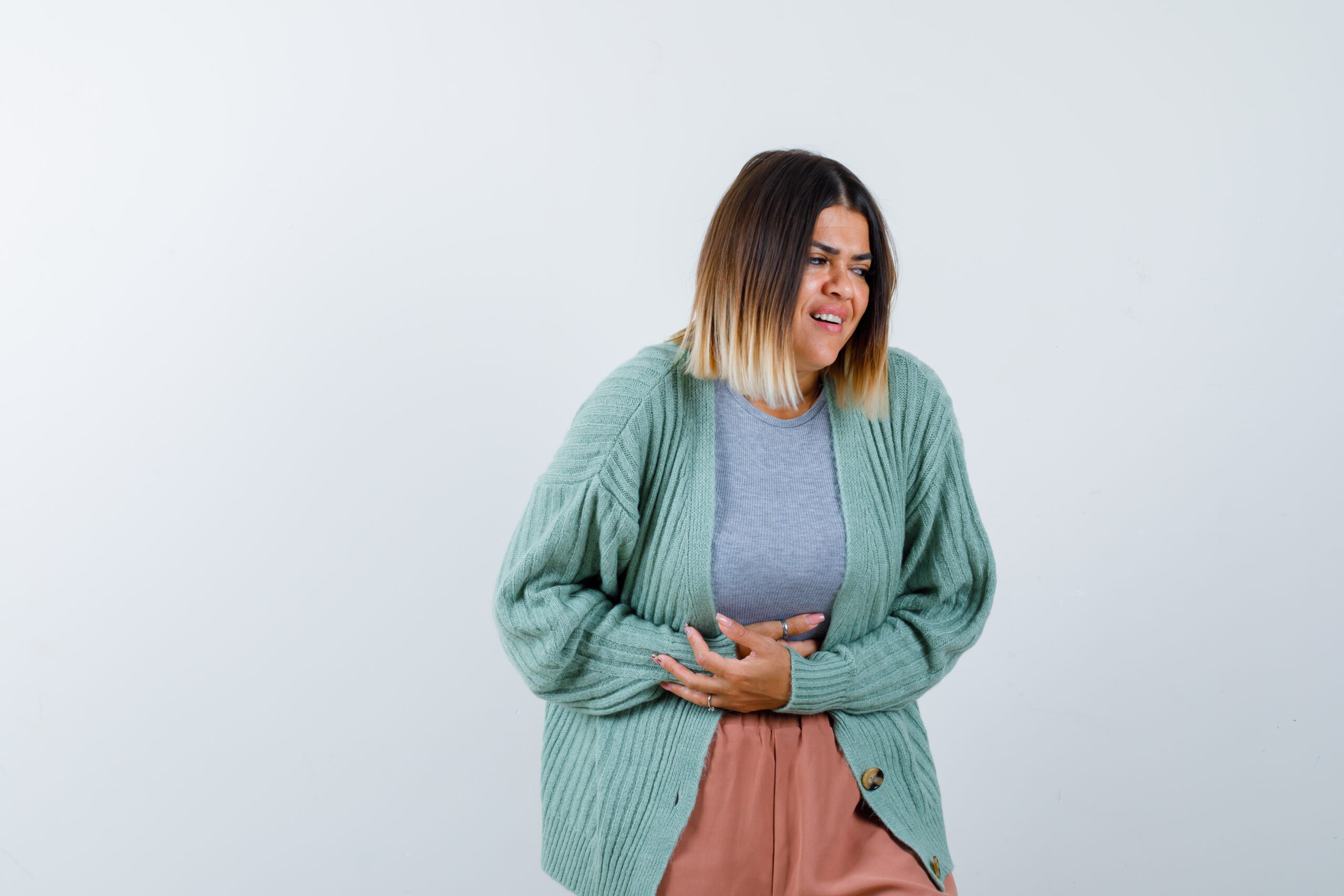
As you can see, gastroenteritis is a viral infection usually associated with severe gastroenteritis symptoms such as vomiting or diarrhea. It is the picture of this disease in the vast majority of cases. However, they do not always have to be present. Symptoms of stomach flu without vomiting and diarrhea include other typical ailments, i.e., nausea, abdominal pain, fever, and malaise. This course of infection is scarce and difficult to diagnose. Sometimes, gastroenteritis occurs without diarrhea but with severe vomiting![]() . It is also a challenging case to diagnose because such symptoms suggest food poisoning.
. It is also a challenging case to diagnose because such symptoms suggest food poisoning.
The acute phase of stomach flu usually lasts 1-3 days![]() , after which the disease disappears spontaneously (it is self-limiting). However, stomach flu can last up to 10-14 days. Patients usually feel a significant improvement in their health after 5-7 days.
, after which the disease disappears spontaneously (it is self-limiting). However, stomach flu can last up to 10-14 days. Patients usually feel a significant improvement in their health after 5-7 days.
Stomach flu![]() is a viral disease not directly related to the flu virus. In children, it is most often caused by rotaviruses
is a viral disease not directly related to the flu virus. In children, it is most often caused by rotaviruses![]() , and in adults by noroviruses
, and in adults by noroviruses![]() . Both belong to the group of reoviruses that can survive on flat surfaces for up to four hours. Due to resistance to high temperatures, most infections occur in autumn-winter and early spring, directly related to weakened immunity. Unfortunately, gastroenteritis is a contagious disease that can spread to other people.
. Both belong to the group of reoviruses that can survive on flat surfaces for up to four hours. Due to resistance to high temperatures, most infections occur in autumn-winter and early spring, directly related to weakened immunity. Unfortunately, gastroenteritis is a contagious disease that can spread to other people.
Food poisoning![]() is acute and violent gastrointestinal symptoms manifested by nausea, vomiting, abdominal pain, and – usually – diarrhea and fever. These occur relatively quickly after eating food contaminated with microorganisms or the toxins they produce and disappear quickly. In sporadic cases, food poisoning may be caused by chemical toxins or pesticides contained in food.
is acute and violent gastrointestinal symptoms manifested by nausea, vomiting, abdominal pain, and – usually – diarrhea and fever. These occur relatively quickly after eating food contaminated with microorganisms or the toxins they produce and disappear quickly. In sporadic cases, food poisoning may be caused by chemical toxins or pesticides contained in food.
The incubation period for food poisoning, especially when caused by bacterial toxins, is very short: from a few to a dozen hours, up to several days at most. The standard feature of food poisoning is its rapid occurrence after eating food, which allows for easy association of gastrointestinal symptoms with the food consumed. Food poisoning is common and is usually mild, but occasionally can even be fatal. They are transmitted through food, and the source of the disease is most often the food of animal origin or food containing animal raw materials.
Food poisoning symptoms![]() are similar to those observed in gastroenteritis – abdominal pain, fever, vomiting, and diarrhea. They occur at various times (e.g., after eating staphylococcal toxin even after two hours) and usually disappear within one to three days. Based on the observed symptoms, it is sometimes difficult to demonstrate the differences between food poisoning and stomach flu. Depending on the cause of poisoning, abnormal components are sometimes observed in the stool – blood, mucus, and pus.
are similar to those observed in gastroenteritis – abdominal pain, fever, vomiting, and diarrhea. They occur at various times (e.g., after eating staphylococcal toxin even after two hours) and usually disappear within one to three days. Based on the observed symptoms, it is sometimes difficult to demonstrate the differences between food poisoning and stomach flu. Depending on the cause of poisoning, abnormal components are sometimes observed in the stool – blood, mucus, and pus.
From contact with the pathogen to the development of the first symptoms of enterocolitis, it ranges from 12 to 72 hours. Usually, the first symptoms are nausea and vomiting. There may also be an increased temperature. Then diarrhea appears—additionally, abdominal pain, general weakness, and loss of appetite. If the infection's cause is rotaviruses, individuals may experience respiratory symptoms.
Symptoms of gastroenteritis in children![]() can be confused with poisoning with toxins produced by certain microorganisms or with appendicitis. Therefore, if your child has severe abdominal pain and a high fever, you should consult a doctor immediately. Additionally, we should be concerned about:
can be confused with poisoning with toxins produced by certain microorganisms or with appendicitis. Therefore, if your child has severe abdominal pain and a high fever, you should consult a doctor immediately. Additionally, we should be concerned about:
In such cases, the specialists recommend contacting a doctor quickly, as it may turn out that the child requires urgent hospitalization and intravenous hydration.
Gastroenteritis is a digestive system infection caused by microorganisms![]() – viruses, less frequently bacteria or their toxins, and parasites. In adults, ailments are most often caused by noroviruses, while in children – rotaviruses. Viruses penetrate the intestinal mucosa and destroy it, resulting in unpleasant symptoms.
– viruses, less frequently bacteria or their toxins, and parasites. In adults, ailments are most often caused by noroviruses, while in children – rotaviruses. Viruses penetrate the intestinal mucosa and destroy it, resulting in unpleasant symptoms.
Infection with gastroenteritis may occur mainly through the oral route due to eating an improperly prepared meal or drinking contaminated water. The disease can also be transmitted through droplets, contact with an infected person, or touching objects with which the sick person has had contact. It is worth pointing out that the disease usually develops within 1-2 days of infection.
Children are most susceptible to gastroenteritis because their symptoms are most severe. The patient is contagious even when no characteristic symptoms of enteritis occur. Moreover, gastroenteritis can be transferable for several days after the specific symptoms of the disease disappear.
There is no specific medication that can treat gastroenteritis![]() . First of all, the specialists advise regular hydration of the body. The patient shouldn't be forced to eat. The best drink is medium-mineralized still water, mint and sage infusions, and electrolytes.
. First of all, the specialists advise regular hydration of the body. The patient shouldn't be forced to eat. The best drink is medium-mineralized still water, mint and sage infusions, and electrolytes.
Drinking sufficient amounts of fluids is necessary because the body of a person suffering from gastroenteritis is often dehydrated. It happens especially when the symptoms are severe. The use of probiotics is also helpful, as it supplements the bacterial flora of the digestive tract. Dehydration![]() is especially dangerous in children and seniors.
is especially dangerous in children and seniors.
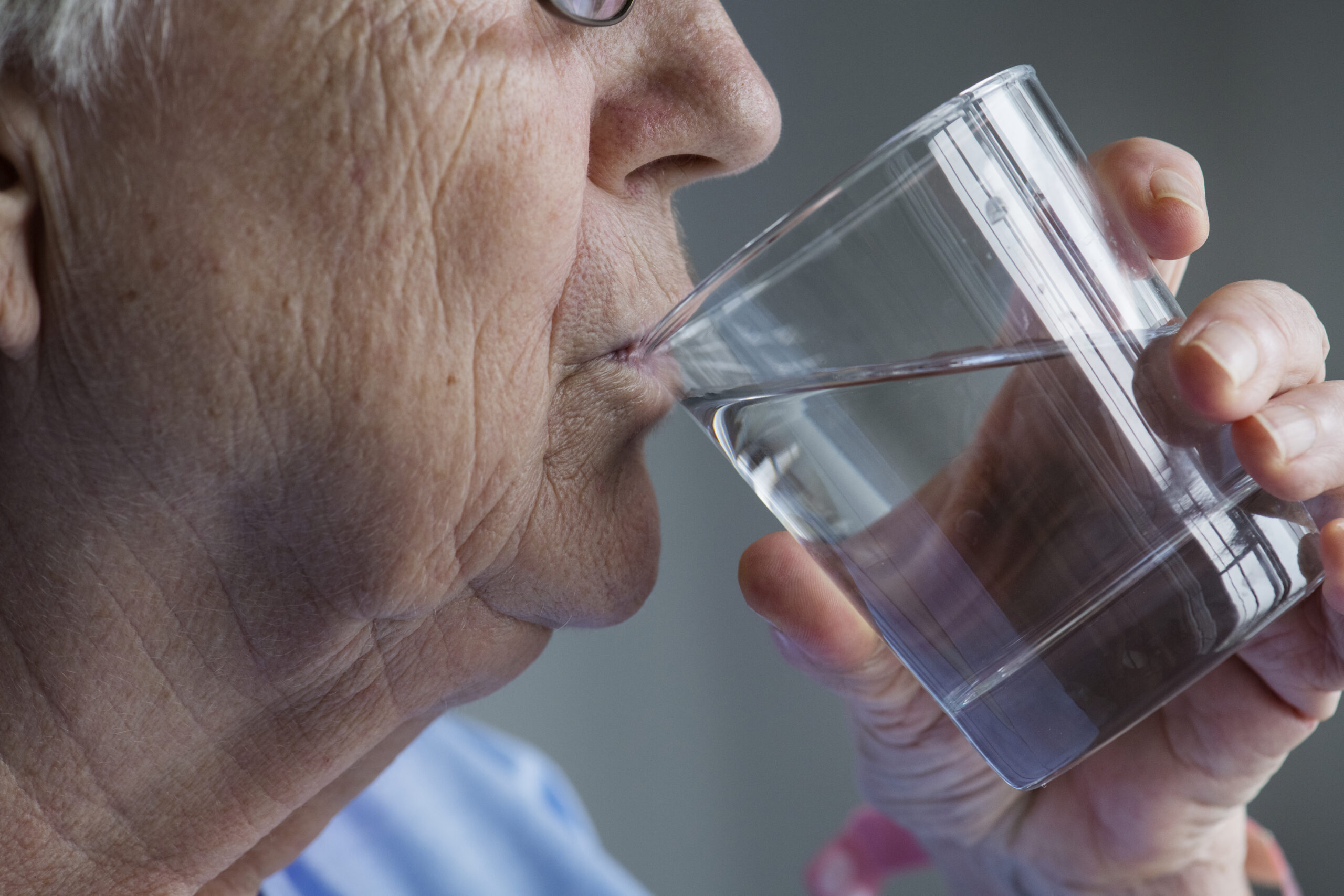
The best medicine for a baby suffering from gastroenteritis is mother's milk. It contains proteins, fats, carbohydrates, and strains of Lactobacillus bacteria, nucleotides that increase the activity of cells that fight microorganisms, vitamins, trace elements, and mineral salts. Additionally, infants should be vaccinated against rotaviruses up to six months of age.
Cold compresses on the forehead or groin will help fight high temperatures. A person suffering should not leave the house until they recover. It is advisable to stay in a regularly ventilated and disinfected room.
Gastroenteritis may pose a threat to the child![]() . The risk of miscarriage and premature rupture of the membranes then increases significantly. To avoid the consequences mentioned above, a pregnant woman
. The risk of miscarriage and premature rupture of the membranes then increases significantly. To avoid the consequences mentioned above, a pregnant woman![]() should supplement fluids. If the symptoms are troublesome, it is also necessary to see a doctor.
should supplement fluids. If the symptoms are troublesome, it is also necessary to see a doctor.
Short-term diarrhea without unpleasant symptoms should not be a cause for concern. All you need to do is follow a diet and properly hydrate your body to alleviate its symptoms.
For the first symptoms, it is worth using natural home remedies that are safe for both the woman and the child. These include:
A proper diet for diarrhea during pregnancy is important in alleviating its symptoms. What should you eat if you have diarrhea during pregnancy? To stop digestive problems in pregnant women, it is worth following the following rules:
Many women take regular medications to protect the fetus, which may interact harmfully with some medications for diarrhea during pregnancy, even those available over the counter. Doctors recommend extreme caution and prudence in such situations. Specialists also recommend the use of probiotics with bacterial strains that have a beneficial effect on the intestinal bacterial flora.
However, if the symptoms are more troublesome, it is worth seeing a doctor; they will be able to prescribe antiemetics safe for use during pregnancy, and most of the drugs used in this case will be in category B or C.
When we notice alarming symptoms, we should see a doctor. Such symptoms include, among others:
The diet![]() of a person suffering from gastroenteritis should include products similar to those for people suffering from any other food poisoning. The disease destroys the mucosa of the digestive system. During the first few days of the acute phase of gastroenteritis, it is worth giving up eating a lot and focusing on smaller portions. Instead, you should drink the previously mentioned drinks, e.g., water, herbal infusions, and mineral mixtures.
of a person suffering from gastroenteritis should include products similar to those for people suffering from any other food poisoning. The disease destroys the mucosa of the digestive system. During the first few days of the acute phase of gastroenteritis, it is worth giving up eating a lot and focusing on smaller portions. Instead, you should drink the previously mentioned drinks, e.g., water, herbal infusions, and mineral mixtures.
When the symptoms of gastroenteritis begin to weaken, after about 2-3 days, you can include, for example, fresh vegetable broth, soft-boiled eggs, delicately cooked turkey meat, veal, and skinless chicken in your diet. The best method of heat treatment is steaming. When returning to a normal diet, do not rush to reintroduce specific products.
Gastroenteritis weakens the body, so it must be provided with the necessary nutrients while recovering from the disease. It is worth enriching your diet with, for example, cooked vegetables, white cheese, or yogurt. Even three weeks after illness, you should avoid hard-to-digest foods.

Since the primary source of infection is sick people, infection is favored by:
To prevent infection![]() you should:
you should:
Gastroenteritis is a self-limiting disease and lasts a relatively short time. Acute infectious diarrhea usually lasts a maximum of 10 days. It usually does not leave any lasting negative consequences. However, the most dangerous consequence of intestinal flu is dehydration. Children, seniors, and people with weakened immunity are most at risk of its occurrence. Sometimes, home hydration and oral rehydration fluids are insufficient, and hospitalization for intravenous hydration is necessary.
A less severe consequence of gastroenteritis is temporary lactose intolerance, which is associated with loose stools. Disturbances in the gastrointestinal microflora very often occur therefore it is worth continuing the use of probiotics during the disease even after the symptoms have disappeared, which will allow for faster reconstruction of the intestinal microflora and return to normal functioning. Acute infectious diarrhea also results in functional disorders, which include prolonged abdominal pain and changes in bowel movements.
Table of Contents

If food is spoiled, undercooked, or contains certain types of bacteria, toxins, or other harmful substances, it may cause food… read more »

Influenza is a viral infection that can lead to severe and life-threatening complications. It can be confused with a common… read more »
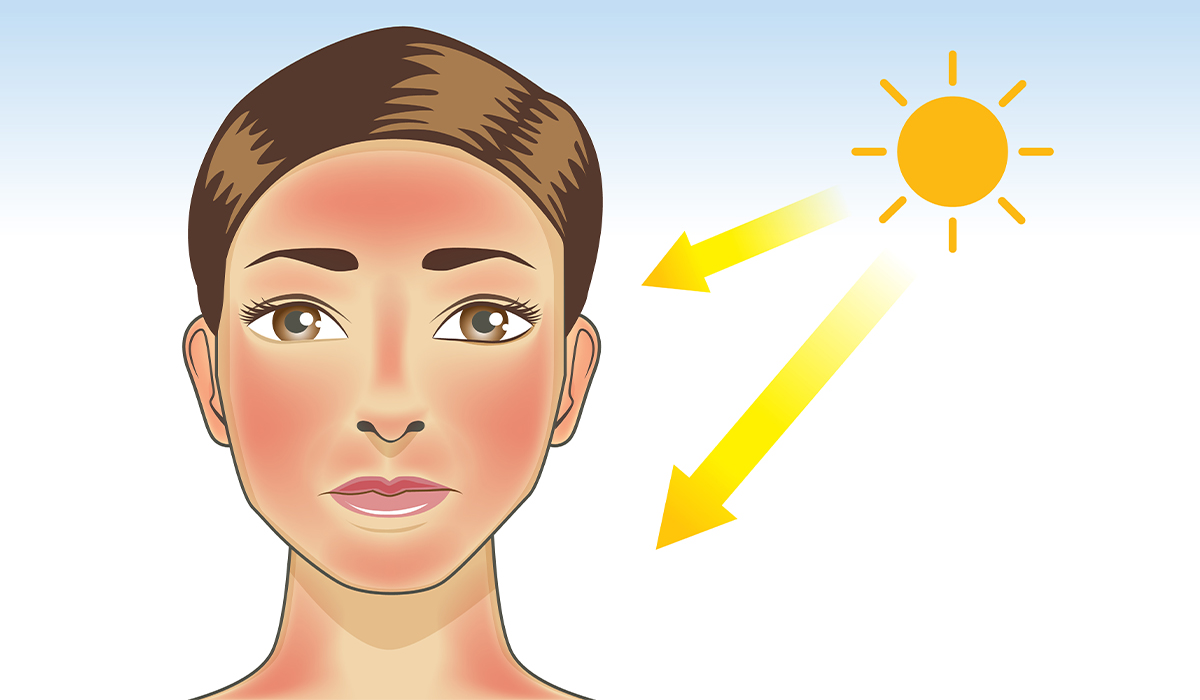
Sun Poisoning is a more severe form of sunburn. Additional distressing symptoms may occur. Learn about the effects of sun… read more »

Bird flu is a disease that rarely affects humans these days. However, it is still possible to become infected. Learn… read more »

A viral infection occurs when a virus invades the body and begins to multiply. Viruses are tiny infectious agents that… read more »

Diarrhea is usually a symptom of a gastrointestinal infection. It is characterized by excessive excretion of stool with a loose… read more »
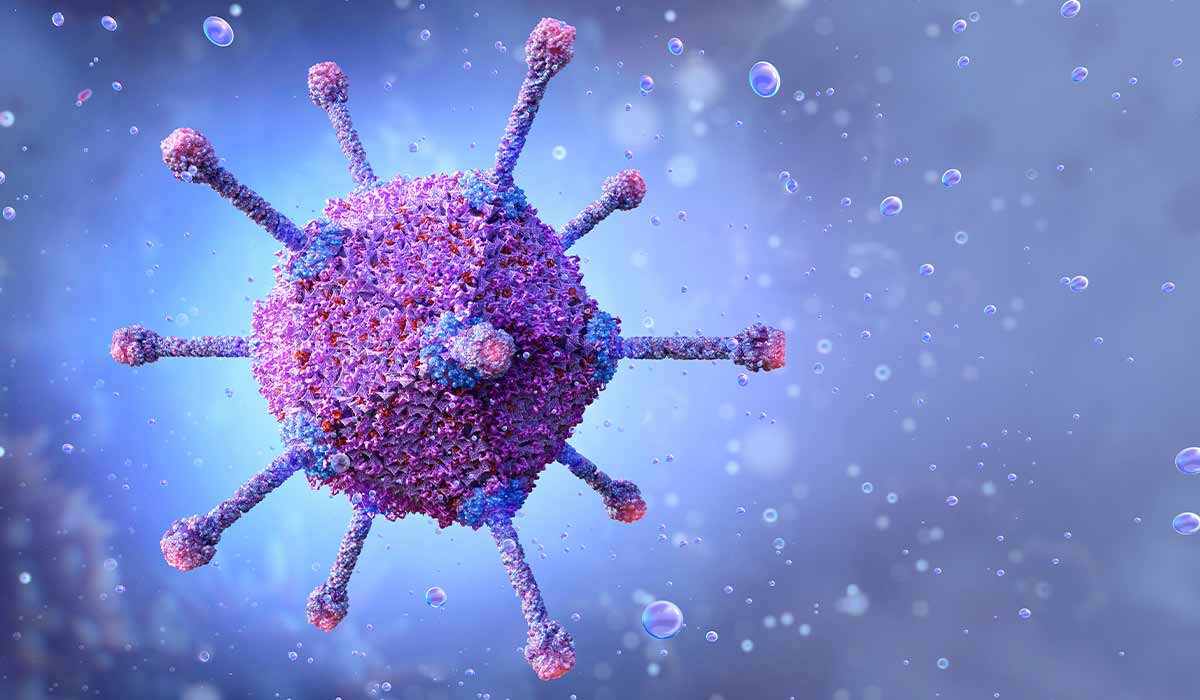
Adenovirus is a pathogen commonly found in the environment. Find out how to recognise adenoviral infections. Learn about treatment and… read more »
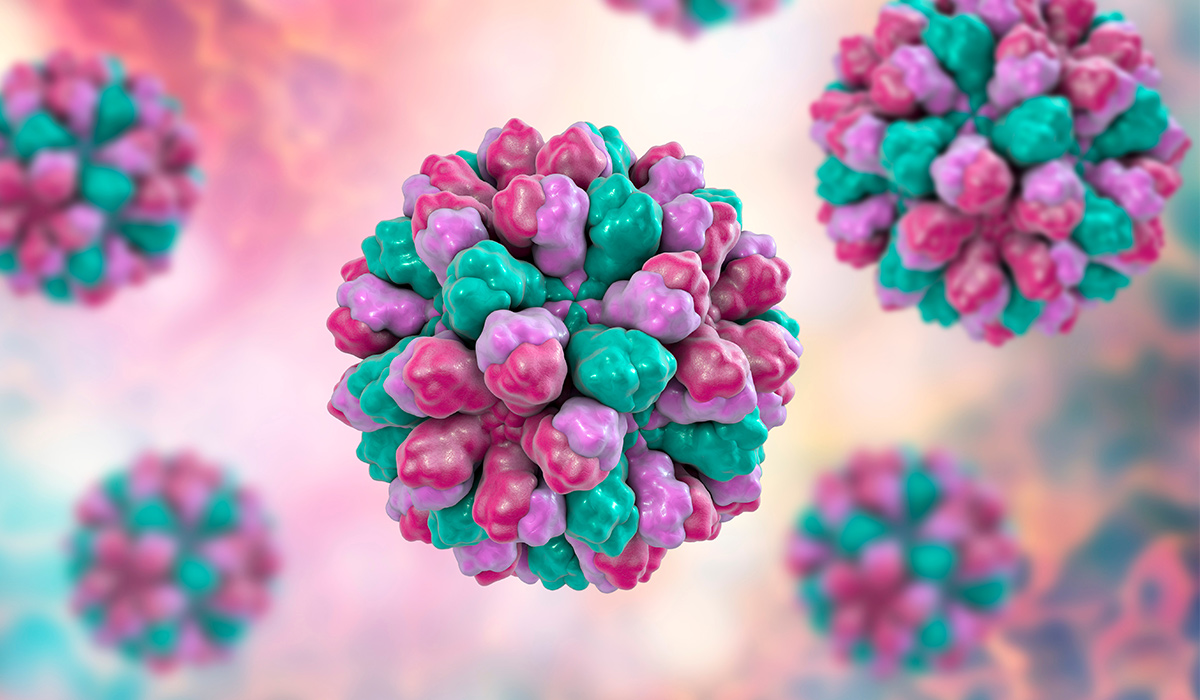
Norovirus is a microorganism that can cause symptoms of food poisoning. Learn about treatment methods for viral digestive diseases and… read more »

The BRAT Diet is very effective method of combating diarrhea and vomiting. What products are recommended for these ailments? read more »